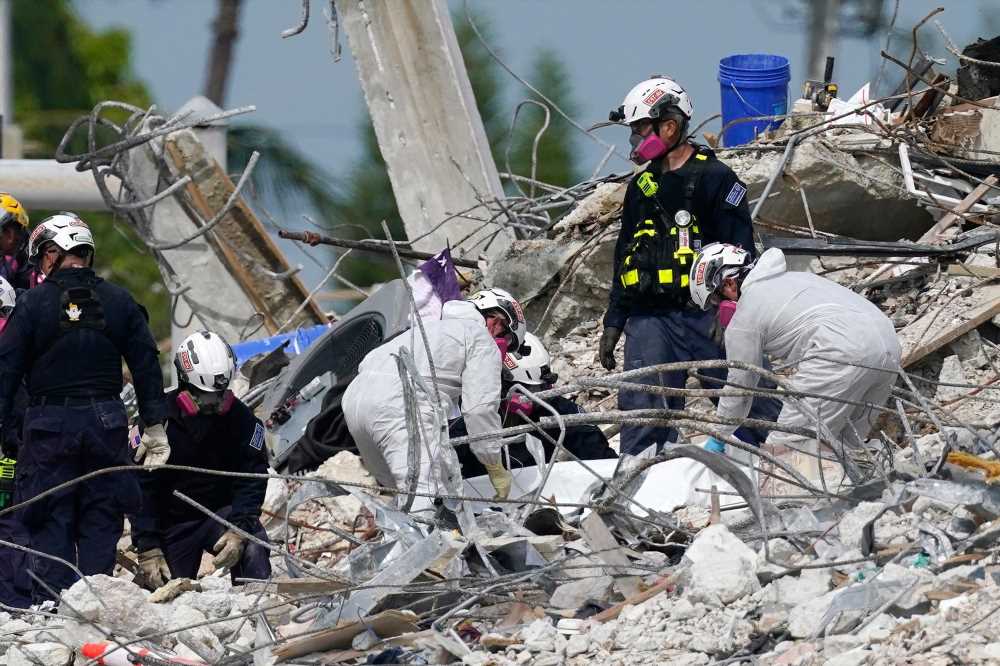To witness her son’s graduation from the National Guard’s Apache helicopter training program in April 2020, Janet Chen used Expedia to book what she thought was a round-trip ticket on Delta Air Lines from her home in Wake Forest, N.C., to Dothan Airport in Alabama. When the pandemic made travel dangerous, she canceled her trip and received a voucher for its full $500 value, to be used within 18 months.
In May, Ms. Chen, a 61-year-old accountant, called the online travel agency and tried to use her voucher for a trip to Seattle. And that’s where her odyssey began.
After two one-hour waits to speak to a customer service representative (and two disconnected calls), the Expedia agent she finally spoke with told her that she had booked two one-way tickets, and she could not use them to buy a new round-trip ticket. After another four-hour call the following day, she finally succeeded in using her voucher, as long as she paid an additional $200, owed, she was told, because of the new routing.
“Who has eight hours to call an online travel agent?” Ms. Chen said. “It really drains you.”
Ms. Chen is far from alone these days in experiencing frustrating delays in rebooking flights, or monthslong waits to get reimbursed for flights canceled by the airlines, and even outright refusals by travel companies to honor flight credits, many of which were granted once the Centers for Disease Control and Prevention recommended that consumers not travel via air during the pandemic.
The frustration and resulting chaos have come to the attention of the federal government. Two senators have sent a letter to the airlines, saying they have convoluted credit- and voucher-granting rules.
When pandemic-related travel restrictions began last year, many airlines and online travel agencies appeared unprepared to deal with an unprecedented number of travelers calling customer service to cancel or reschedule flights. Would-be fliers complained of untimely answering of calls and representatives not understanding the rules for using credits. In April 2020, the Department of Transportation received over 17,000 complaints about inabilities to get refunds for flights, a more than 17,000-percent increase from just 98 in the same month in 2019.
“Once Covid hit, we saw our call volume increase up to seven times normal. We also had to deal with changes in policies from the airlines. And at that time, we could only handle 10 percent of flight cancellation requests online,” said Shiv Singh, senior vice president and general manager for the Expedia brand, in Seattle.
With the United States and other countries easing travel restrictions in recent months, it appears that some travel companies have been unprepared once again. In April, refund issues still accounted for nearly 70 percent of all airline complaints to the Transportation Department. That’s down from the 75 percent in March and the 88 percent in April 2020, but still far above the level of April 2019, when refund issues accounted for just eight percent of all complaints.
Consumer frustrations in rebooking canceled flights, receiving refunds and using vouchers come from often-hours-long wait times to speak to a customer service agent, at both the airlines and online travel agencies. They are also shown in rock-bottom ratings of online travel agencies, such as Booking.com, as well as Expedia, Orbitz and Travelocity (all owned by Expedia) on ratings websites such as Trip Advisor and Trustpilot and with the Better Business Bureau. Consumers cite multiple disconnected calls, six-hour (and longer) wait times to speak to often-unhelpful customer service reps and an inability to use certified flight credits.
When it comes to issuing vouchers and credits, online travel agencies must follow the rules set forth by the airlines. Expedia understands customers’ frustrations, said Mr. Singh. “We don’t set airline policies, and we have to deal with 3,000 different ones across all the airlines.”
Whether booked through an online travel agency or direct with the airlines, flight credits and vouchers will generally expire in one year; those granted because of the fear of flying during the pandemic often have longer expiration dates.
Rules set by the Transportation Department state that airlines must give a full refund within seven days for a flight that they cancel, or for one that has a “significant” delay or schedule change or for a ticket that a consumer cancels within 24 hours of purchase. Otherwise, airlines are free to do what they wish for passengers who have canceled their flights for personal reasons.
Most airlines have issued vouchers with extended expiration dates to travelers wishing to change their travel plans during the past year. American Airlines and United allow already-issued flight credits to be used through March 31, 2022, while Delta has extended its flight credit validity to Dec. 31 of that year.
All issues with fares purchased or vouchers issued through an online travel agency have to be dealt with by that particular company, not the airline, adding an extra layer to the process. With new fare rules and such a surge of customer service calls, consumer frustration has risen.
In February of last year, Diana Woolard, 63, booked an Aer Lingus flight through Orbitz. The airline canceled her flight in May and in December Ms. Woolard learned that she would be getting a full refund of her $4,500 fare by March. Six months after getting her refund notice, she was still waiting.
“Aer Lingus tells me they issued the refund and I have to call Orbitz. I got called back from Orbitz four hours after I called,” said Ms. Woolard a retired nurse from Winston-Salem, N.C. “I had to wait another hour to speak to someone. Orbitz said they cannot access my records and that I may not get the refund until the end of 2021,” more than 18 months after the flight was canceled. “I know the airlines are struggling, but you just feel so helpless,” she said.
The holdup in the refund, according to Nisreene Atassi, a company spokeswoman, stemmed from a glitch in the Orbitz computer system which rejected the refund because it had been authorized after the one-year expiration period. (After an inquiry by The Times, Ms. Woolard has now received her refund.)
To improve its customer service, Expedia has hired an additional 500 representatives for its companies to add to its 6,000 total across 30 countries, Mr. Singh said, but it takes three months to train them before they can do the job. Likewise, American Airlines said that it is hiring “hundreds” of customer service agents to deal with the increased call volume.
Expedia expects customers to see improvements soon. Its companies can now handle 80 percent of flight cancellation requests through its websites, up from 10 percent at the start of the pandemic. And by August, it expects to be able to answer 80 percent of its customer service calls within 20 seconds or less, Ms. Atassi said.
With more customer service representatives for the airlines and online travel agencies, wait times should begin to ease. For those who still can’t get satisfaction from either, Bill McGee, Consumer Reports’ aviation adviser, recommends that passengers contest the charges with their credit card issuer. “According to the Fair Credit Billing Act, you’re entitled to a refund if you don’t get goods and services,” Mr. McGee said. “Quite a few readers have gotten satisfaction this way.”
Both Mastercard and Visa require transaction disputes to be filed within 120 days of the original payment. But the price cannot be refunded if the original ticket was a nonrefundable fare, a Visa spokesperson said.
Even with the more-generous expiration dates, vouchers will still eventually expire and the customer will forfeit the amount if the voucher is not used. If specific circumstances prevent a customer from traveling by next spring, American Airlines will work with customers on an individualized basis, said Andrea Koos, a senior manager of corporate communications at American Airlines.
With most airlines, vouchers and credits do expire. “This is an industry standard practice,” said Drake Castañada, a Delta spokesman.
During the height of the pandemic, JetBlue extended its standard one-year expiration date for flight vouchers to two years, for tickets canceled between Feb. 27 and June 30, 2020.
But that didn’t help Jenna Kelly, 40, a stay-at-home parent from Ponte Vedra, Fla. Falling ill, she canceled her ticket from Jacksonville to Key West for a birthday celebration on Feb. 13, 2020 and, after paying a $75 cancellation fee, received a voucher for the balance that expired one year from that date.
JetBlue would not extend the expiration date of the voucher. “It was unfair to give me 12 months during a global pandemic to use my voucher. Four hundred, seventy-five dollars, down the drain for nothing in return,” Ms. Kelly said.
Senators Edward Markey of Massachusetts and Richard Blumenthal of Connecticut, both Democrats, sent a letter last month to seven major U.S. airlines asking them why, among other questions, they haven’t committed to giving cash refunds for all flights canceled during the pandemic, whether the cancellation were made by the airline or the passenger, or at a minimum, provide flight vouchers that are valid indefinitely by default, just like gift cards.
The senators were particularly incensed because of the large amount of federal aid that the airline industry was given as a result of the Covid-fueled decrease in passenger traffic last year. Through multiple rounds of funding, the airlines received $54 billion in payroll support grants.
In a letter from Airlines for America, a trade association, the airlines replied that “all A4A member airlines offer very generous expiration dates for unused travel credits issued during the pandemic. Current policies give customers significant time to use credits well into the future.
“If air carriers had refunded all tickets in the form of cash, many would have been forced to declare bankruptcy,” the letter stated.
“That’s just plain baloney,” Senator Blumenthal said in an interview. “The airlines are doing increasingly well and flights are at full capacity. Their letter was almost contemptuous to the points we made.
“Customers paid for a service and they were denied it. Expiration dates on airline tickets are unconscionable.”
52 Places to Love in 2021
We asked readers to tell us about the spots that have delighted, inspired and comforted them in a dark year. Here, 52 of the more than 2,000 suggestions we received, to remind us that the world still awaits.
Follow New York Times Travel on Instagram, Twitter and Facebook. And sign up for our weekly Travel Dispatch newsletter to receive expert tips on traveling smarter and inspiration for your next vacation. Dreaming up a future getaway or just armchair traveling? Check out our 52 Places list for 2021.
Source: Read Full Article



